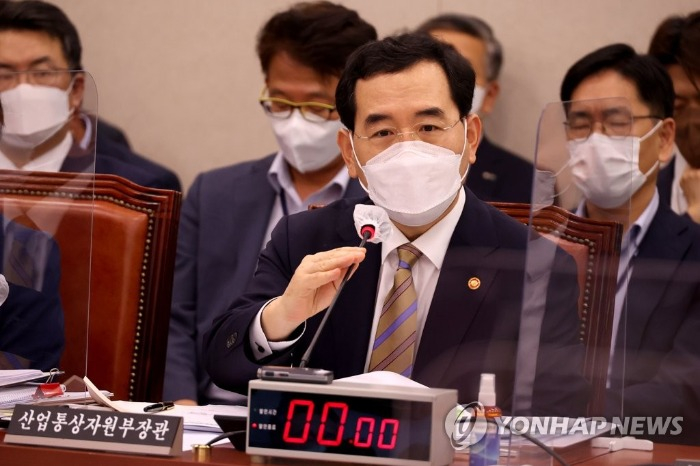The South Korean government is considering filing a complaint with the World Trade Organization (WTO) over the US' new Inflation Reduction Act (IRA), which offers tax credits to electric vehicles that use batteries made in the US, Canada and Mexico.
“The act is highly likely to violate WTO regulations as well as the Korea-US free trade agreement (FTA). We are actively reviewing whether to bring the case to the WTO,” said Minister of Trade, Industry and Energy Lee Chang-yang during a parliamentary session on Monday.
“We are conveying our concerns to the US via various channels and will send a senior trade executive to the country next week to confirm the intent of the US,” Lee added.
Trade Minister Ahn Duk-geun will also address US government officials while in Los Angeles for the Indo-Pacific Economic Framework (IPEF) ministers' meeting in early September.
KOREA-MADE EVS TO LOSE PRICE COMPETITIVENESSThe IRA, which took effect on Aug. 16, contains provisions for the US to allow tax credits for EVs that use batteries made in North America with minerals mined or components made in the region.
Also, the qualifying EVs must contain at least 40% of the battery minerals and 50% of the battery components supplied from or processed in the US or its free trade partner countries. The proportion will rise to 80% for minerals by 2027 and 100% for parts by 2029.
The act, aiming to diminish China’s power in the global EV market, is expected to impact Korea’s finished car makers. Hyundai Motor Group’s main EVs, such as the IONIQ 5 and the EV6, are manufactured in Korea.
The tax credit will be up to $7,500 per EV unit, which means the price of the disqualifying EVs will be higher. Some Korean battery makers such as LG Energy Solution Ltd. and SK On Co. are taking the issue seriously as their batteries are highly dependent on China’s raw materials.
KOREAN POLITICIANS SPEAK UP AGAINST THE ACT “The Ministry of Trade, Industry and Energy delivered the office of the United States Trade Representative (USTR) a message that the act is likely in violation of WTO regulations and the FTA. We will work with the Korean EV industry to seek out strategies to resolve the situation,” said Lee on Monday.
Some key politicians in Korea also criticized the act, asserting that the law is unfair.
“It doesn’t make sense that the US accelerates the global supply chain through IPEF while excluding Korea-made EVs from the tax credits,” said Kweon Seong-dong, floor leader of the ruling People Power Party.
“The act discriminates against certain countries. The US should consider that Korean automakers have contributed to US economic growth and industrial development through investment and employment,” said Lee Won-wook, a Democratic Party member.
In response to the act, Hyundai Motor Group will accelerate the construction of its first EV-dedicated plant and battery manufacturing facilities in the US state of Georgia.
In May, the carmaker announced it will invest $5.54 billion for the construction and begin commercial production in the first half of 2025 with an annual capacity of 300,000 units. The firm is now working to start production around six months earlier or in the second half of 2024.
Write to Ji-Hoon Lee, Jae-Yeon Ko and So-Hyeon Kim at
lizi@hankyung.comJihyun Kim edited this article.




